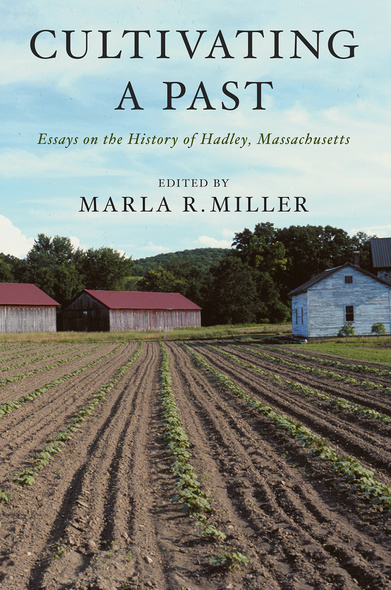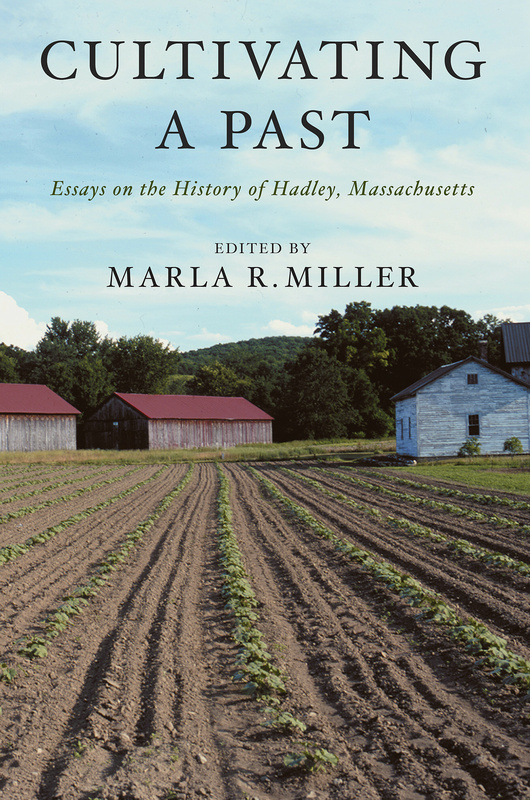Cultivating a Past
Essays on the History of Hadley, Massachusetts
Edited by Marla R. Miller
University of Massachusetts Press
In 1659, a group of Puritan dissenters made their way north from Hartford and Wethersfield, Connecticut, to a crook in the Connecticut River that cut through some of the most fertile land in New England. Three hundred and fifty years later, a group of distinguished scholars mark the founding of that town— Hadley, Massachusetts—with a book that explores a history as rich as that soil.
Edited with an introduction by Marla R. Miller, Cultivating a Past brings together fifteen essays, some previously published and others new, that tell the story of Hadley from a variety of disciplinary vantage points. Archaeologists Elizabeth Chilton, Siobhan Hart, Christopher Donta, Edward Hood, and Rita Reinke investigate relations between Native and European communities, while historians Gregory Nobles, Alice Nash, and Pulitzer Prize winner Laurel Thatcher Ulrich explore the social, cultural, and political past of this New England town. Musicologist Andrea Olmstead surveys the career of composer Roger Sessions, costume specialist Lynne Bassett interprets the wardrobes of the town's seventeenth-century residents, Douglas Wilson investigates the connection between Hadley and the regicides William Goffe and Edward Whalley, and Martin Antonetti charts the course of a 1599 Bible alleged to have belonged Goffe.
Taken together, the essays capture how men and women in this small community responded to the same challenges that have faced other New Englanders from the seventeenth century to the present. They also reveal how the town's historical sense of itself evolved along the way, as stories of the alleged "Angel of Hadley," of favorite sons Joseph Hooker and Clarence Hawkes, and of daughters Mary Webster and Elizabeth Porter Phelps contributed to a civic identity that celebrates strength of character.
Edited with an introduction by Marla R. Miller, Cultivating a Past brings together fifteen essays, some previously published and others new, that tell the story of Hadley from a variety of disciplinary vantage points. Archaeologists Elizabeth Chilton, Siobhan Hart, Christopher Donta, Edward Hood, and Rita Reinke investigate relations between Native and European communities, while historians Gregory Nobles, Alice Nash, and Pulitzer Prize winner Laurel Thatcher Ulrich explore the social, cultural, and political past of this New England town. Musicologist Andrea Olmstead surveys the career of composer Roger Sessions, costume specialist Lynne Bassett interprets the wardrobes of the town's seventeenth-century residents, Douglas Wilson investigates the connection between Hadley and the regicides William Goffe and Edward Whalley, and Martin Antonetti charts the course of a 1599 Bible alleged to have belonged Goffe.
Taken together, the essays capture how men and women in this small community responded to the same challenges that have faced other New Englanders from the seventeenth century to the present. They also reveal how the town's historical sense of itself evolved along the way, as stories of the alleged "Angel of Hadley," of favorite sons Joseph Hooker and Clarence Hawkes, and of daughters Mary Webster and Elizabeth Porter Phelps contributed to a civic identity that celebrates strength of character.
A fitting act of homage to the town of Hadley and to Sylvester Judd, whose 200th anniversary volume created a model for the New England town history, set a standard for research, and showed that the lives of ordinary people were worthy of serious study.'—Kevin M. Sweeney, co-author of Captors and Captives: The 1704 French and Indian Raid on Deerfield
'Miller has done a magnificent job, gleaning excellent essays about a small town in western Massachusetts.'—Irmarie Jones, The Reporter
Marla R. Miller is associate professor of history and director of the Public History Program at the University of Massachusetts Amherst. She is author of The Needle's Eye: Women and Work in the Age of Revolution (University of Massachusetts Press, 2006).





